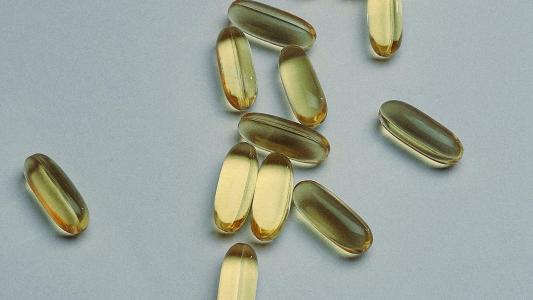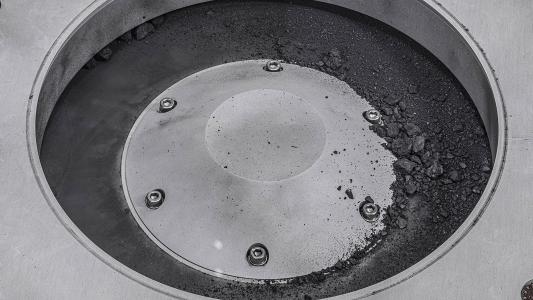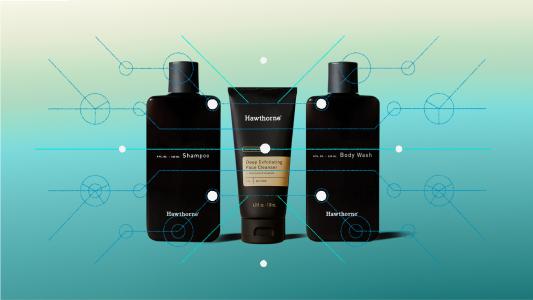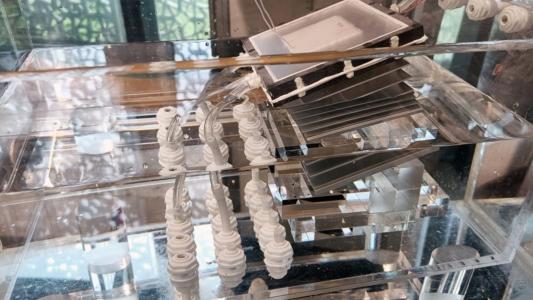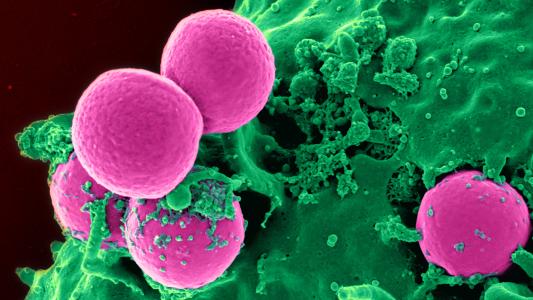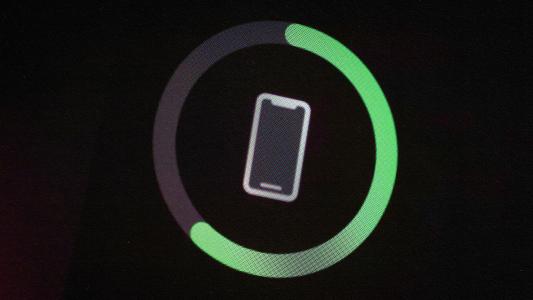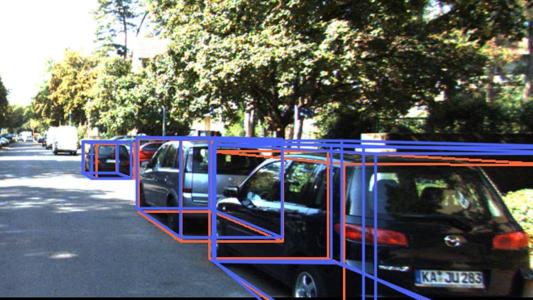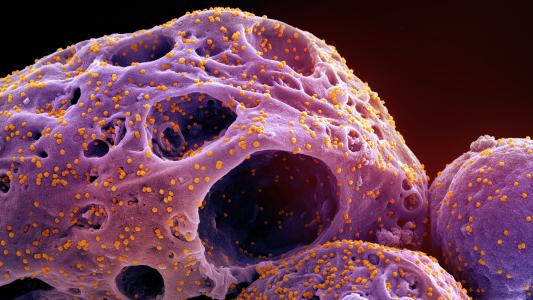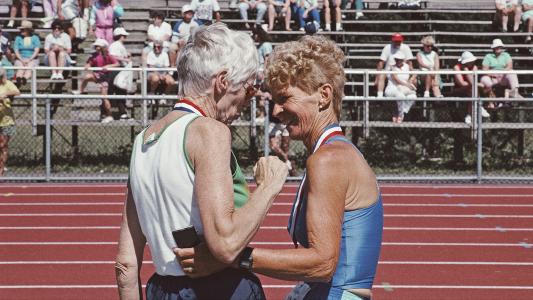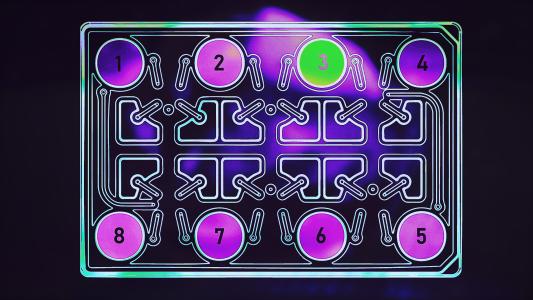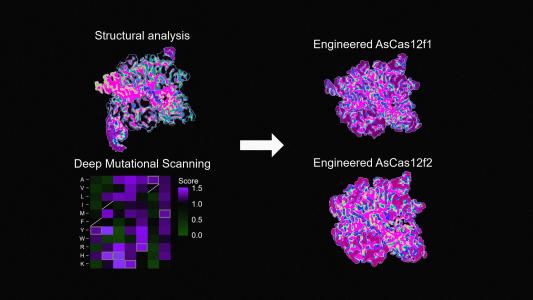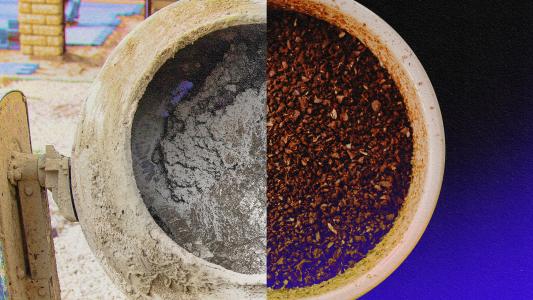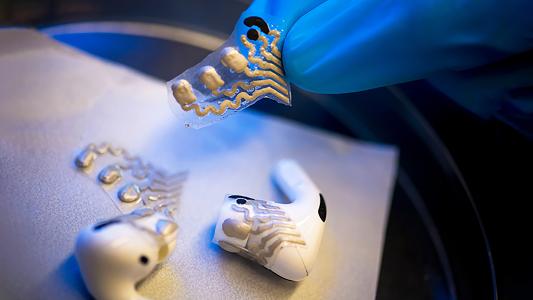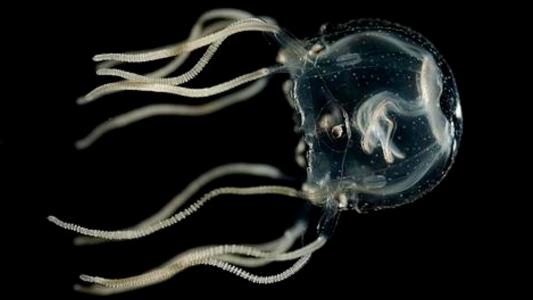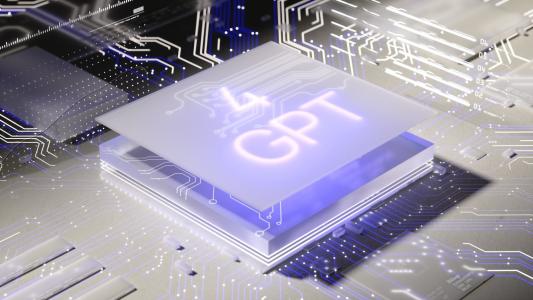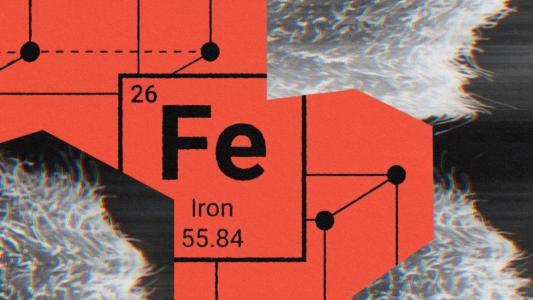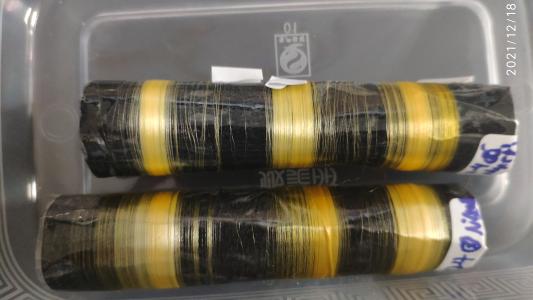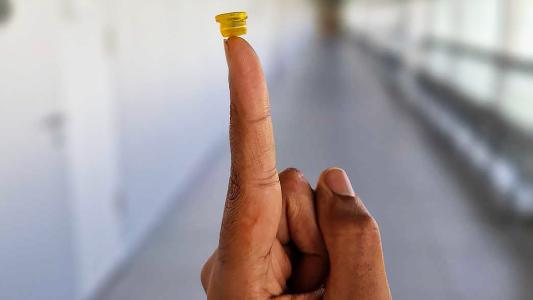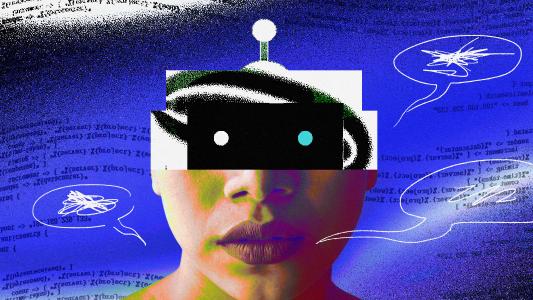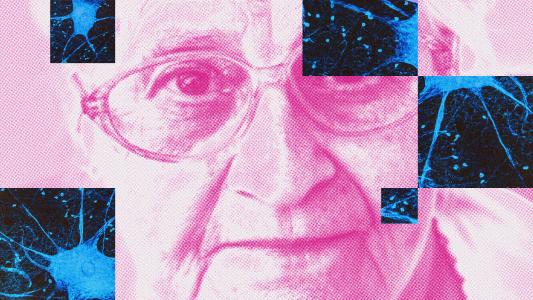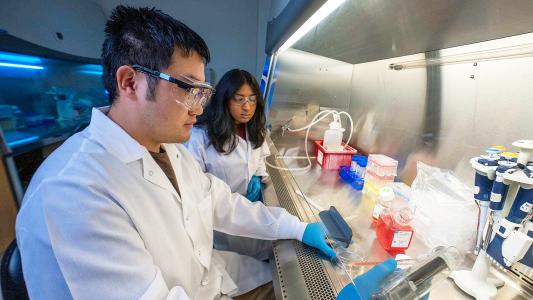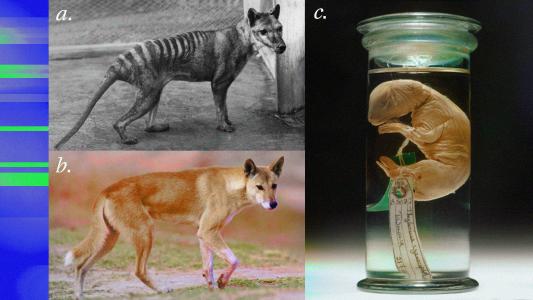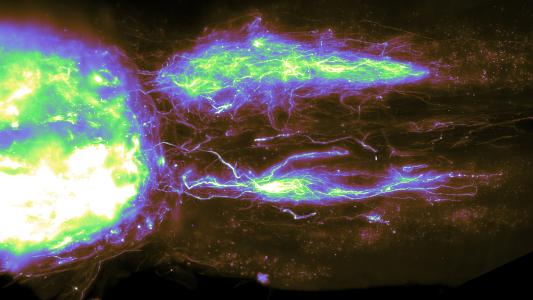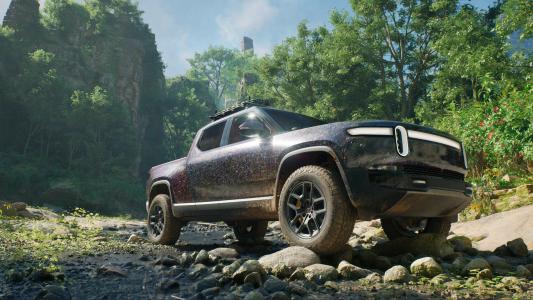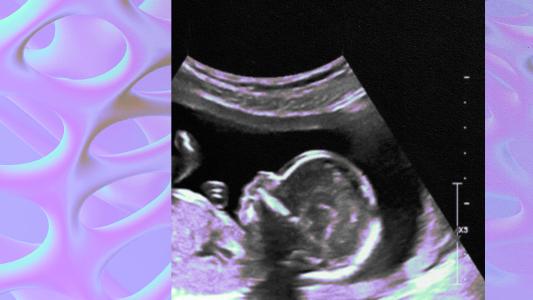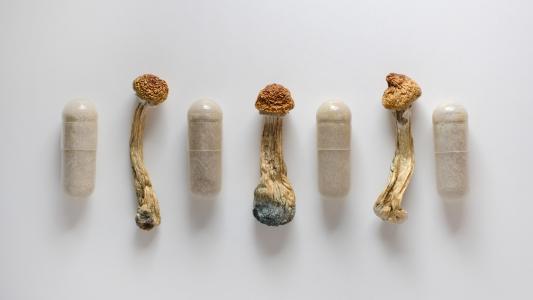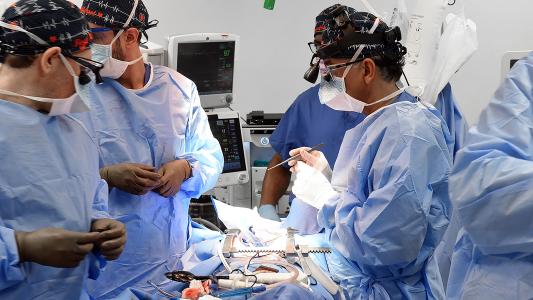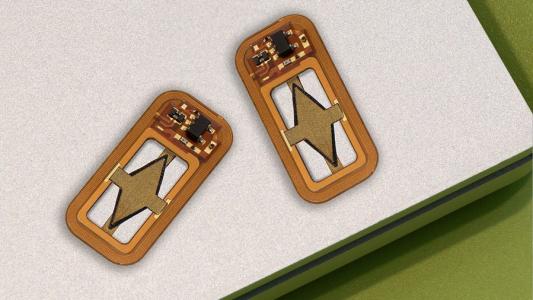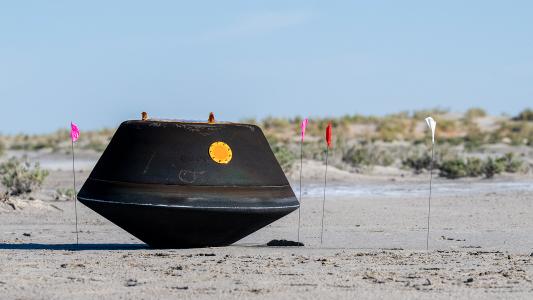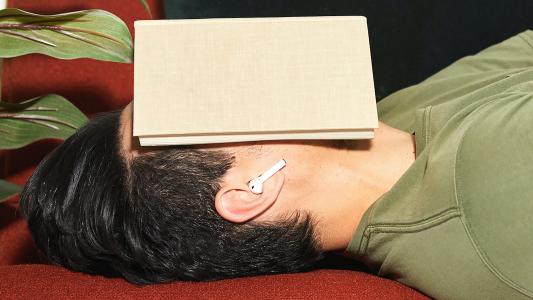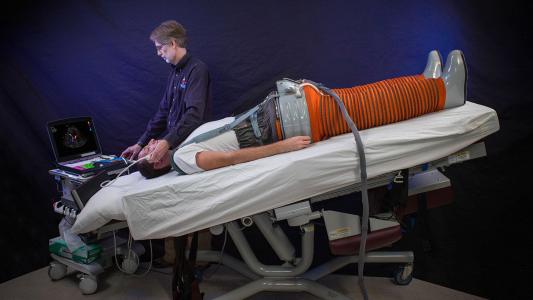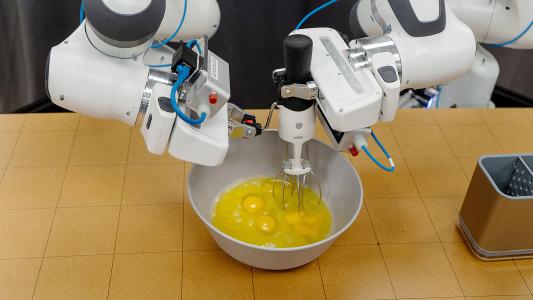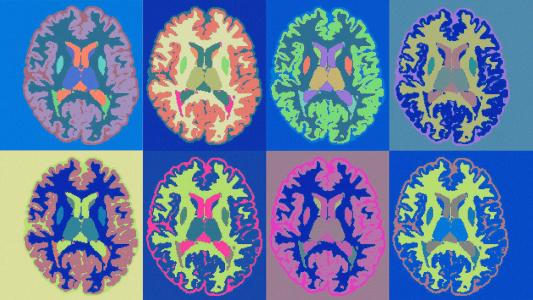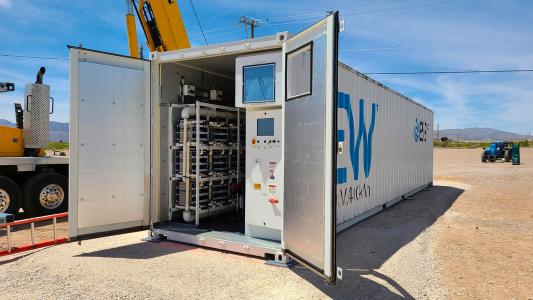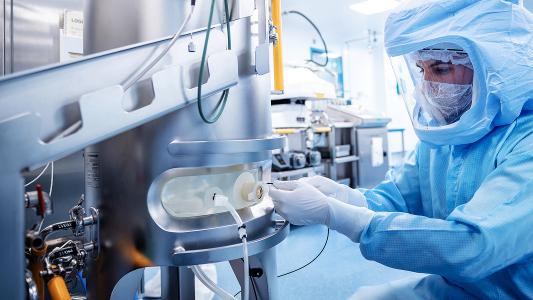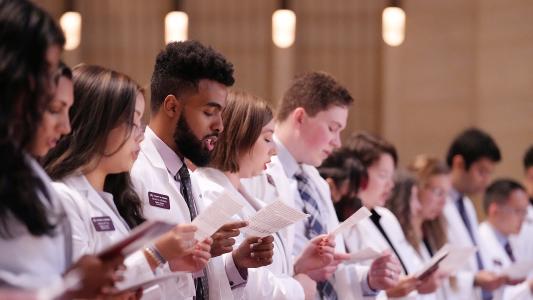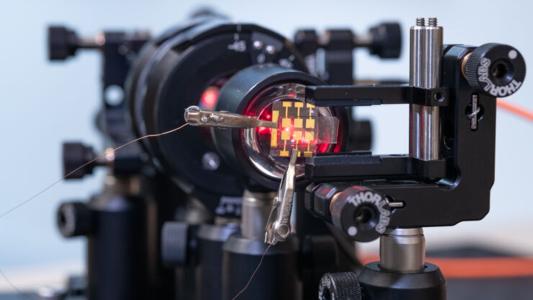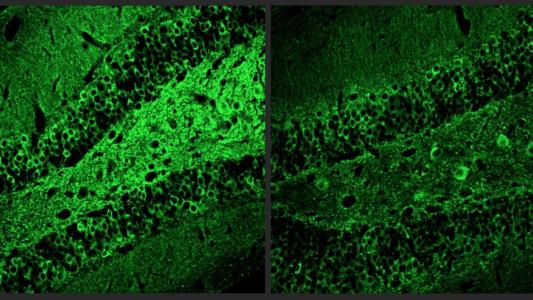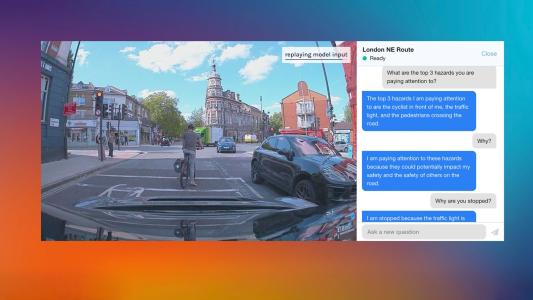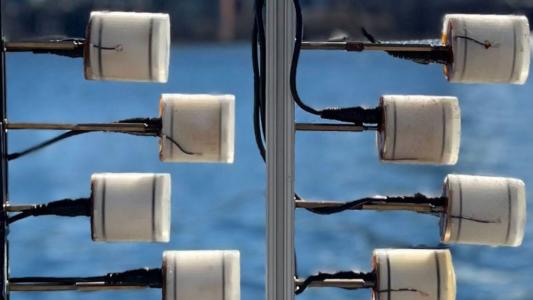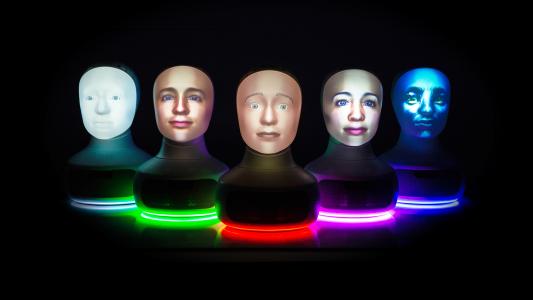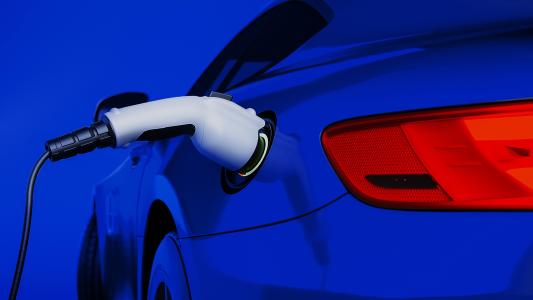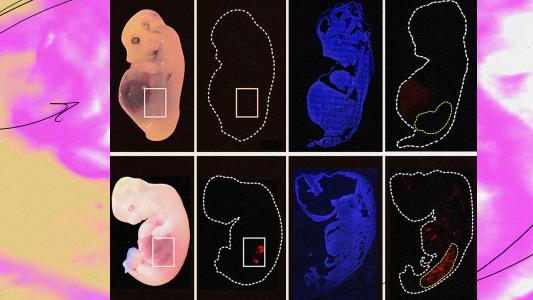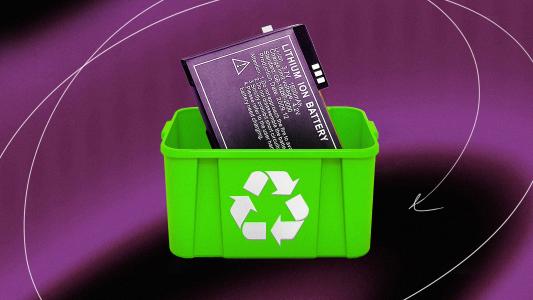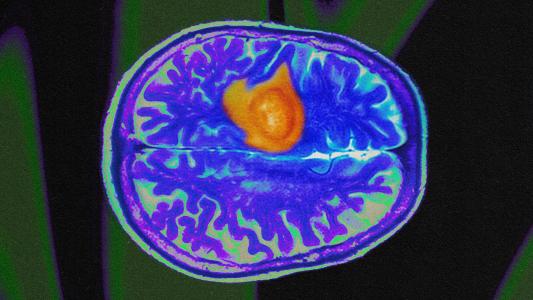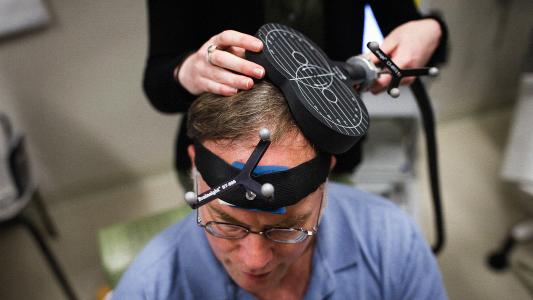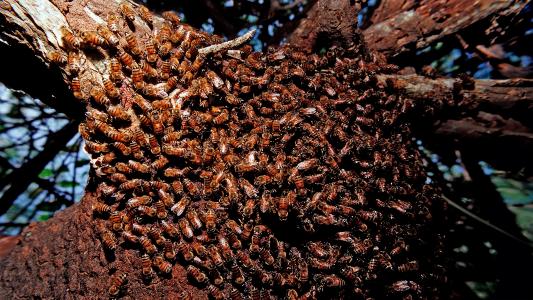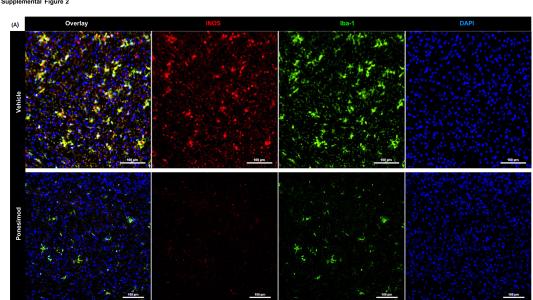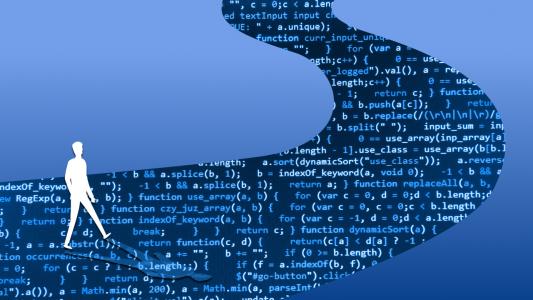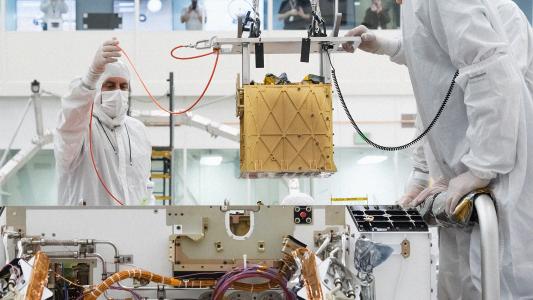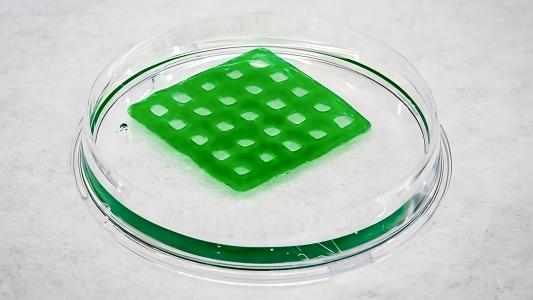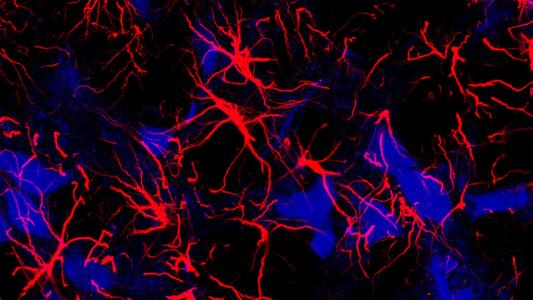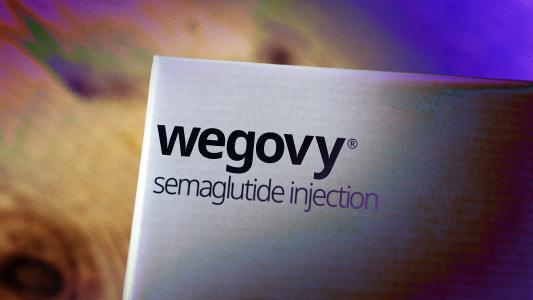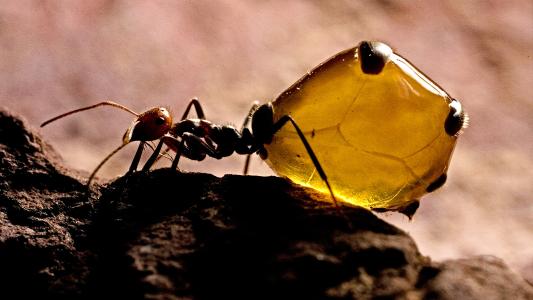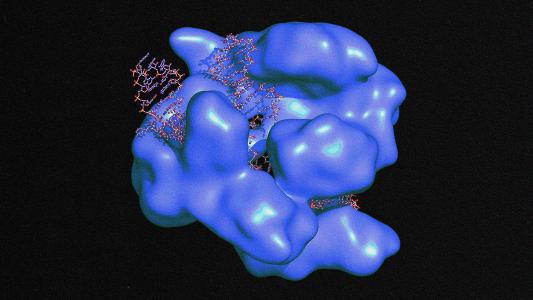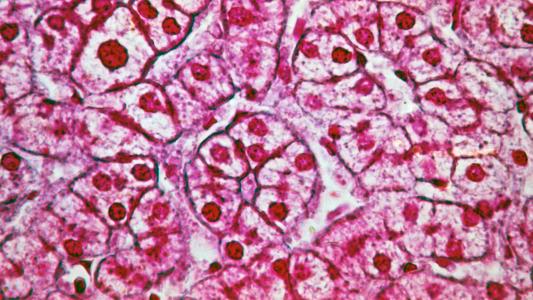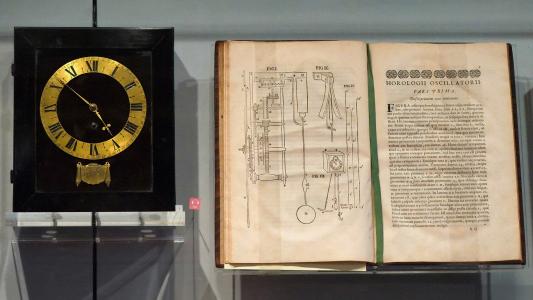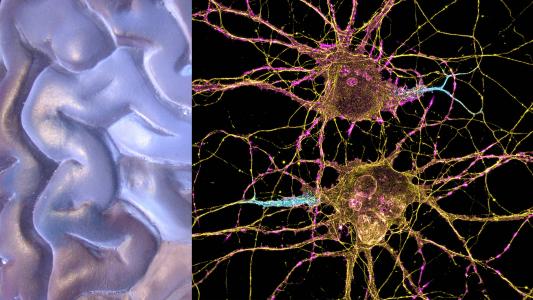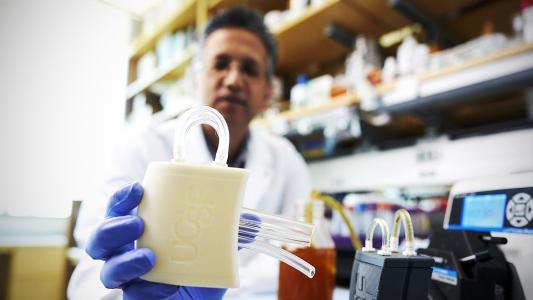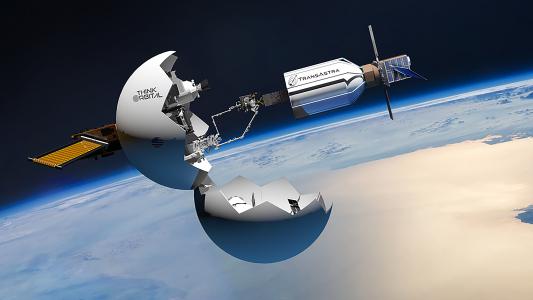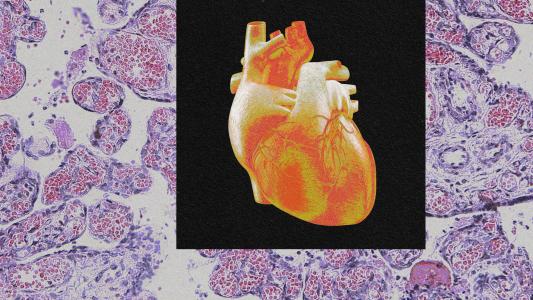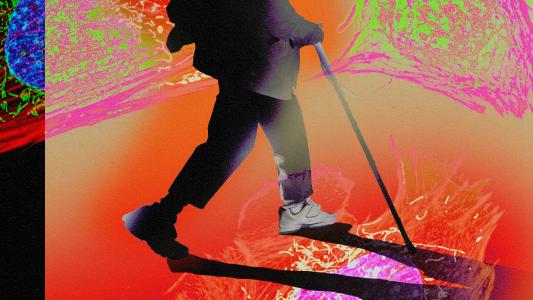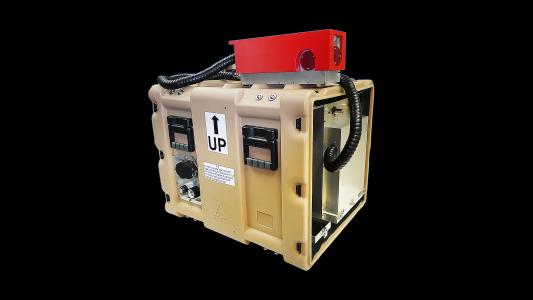What does the evidence say about omega-3 fats for heart disease, dementia, and arthritis?
Are fish oil supplements as good for preventing heart disease, dementia, and other health conditions as we think? Or is eating fish better?
NASA’s asteroid sample contains an abundance of carbon and water
On October 11, NASA shared its first update on the Bennu asteroid sample brought to Earth by the OSIRIS-REx mission.
How Hawthorne used data-backed personalization to innovate men’s personal care
In partnership with Million Stories
Hawthorne is a premium men’s personal care brand that recommends products to customers based on their needs.
Desalination system could produce freshwater that is cheaper than tap water
Engineers are aiming to turn seawater into drinking water with a completely passive, solar-powered device that is inspired by the ocean.
Chipotle’s new robot can make your burrito bowl or salad
Chipotle is testing a new robot that makes burrito bowls and salads under the same table where employees fill orders.
How a scientist looking to prove his food wasn’t fresh discovered radioactive tracers and won a Nobel Prize
George de Hevesey had the suspicion the cooks were reusing leftovers and made his dinner into a radioactive tracer experiment.
This massive autonomous cargo plane could slash shipping costs
A UK startup has an ambitious plan to slash the cost of air freight by shipping goods in a massive autonomous cargo plane.
New superbug vaccine turns the immune system into “the Hulk”
A superbug vaccine that temporarily puts the immune system on high alert could reduce the number of hospital-associated infections.
Should you charge your phone overnight? Will “overcharging” make it explode?
Does prolonged (or overnight) charging wreak havoc on your phone battery? An expert answers this and other common battery questions.
New AI algorithm transforms 2D photos into 3D maps
A new method named MonoXiver uses AI to build up reliable 3D maps of a camera’s surroundings based only on 2D photos.
After studying 850 hours of footage, this paper offers 3 rules for a great conversation
Good conversations leave a lasting impression. They are rewarding and enriching. Here's how to have more of them.
Where are the universal coronavirus vaccines?
Universal coronavirus vaccines that protect against all known variants of COVID-19 — and ones that don't exist yet — are closer than ever.
Study finds exactly how long people want to live: it isn’t forever
Most people prefer a shorter life if they have dementia, chronic pain, or are a burden to their families.
Is human uncertainty the key to improving AI?
AI systems assume humans are always certain. Teaching them to anticipate and understand uncertainty may help them reduce human error.
New “Lattice” device tests drugs on eight organs at once
Northwestern University scientists have developed a device that simulates up to eight organs at once to aid drug development.
New CRISPR system is 66% smaller but just as powerful
A new CRISPR system is just as efficient as CRISPR-Cas9 but much smaller, which could make it easier to deploy in people.
Study: ancient technique holds thousands of tons of carbon, sequestered over centuries
"Dark earth" holds thousands of tons of carbon, sequestered over centuries by indigenous practices, a new study suggests.
Researchers brew a stronger concrete using — coffee?
Researchers and engineers from RMIT University made concrete 30% stronger in the lab by incorporating aggregates made from coffee grounds.
These earbuds analyze brain activity and sweat content
A flexible sensor turns a pair of earbuds into a health monitoring device capable of recording brain activity and analyzing sweat.
T-Minus Weekly: An astronaut’s return, a Martian dust devil, and more
Freethink's weekly countdown of the biggest developments in space, featuring the return of NASA's Frank Rubio, a dust devil on Mars, and more.
“Forbidden planet” is orbiting a star that should have destroyed it
About 520 light-years from Earth, the planet Halla is orbiting a red giant that should have already engulfed and destroyed it.
Jellyfish surprise scientists by learning without a brain
Researchers demonstrate that Caribbean box jellyfish don't just float around aimlessly. They learn and adapt to their environment.
GPT-4 scores in the top 1% of test-takers for creative thinking
New AI tools are increasingly part of creative production, and are scoring surprisingly high in creative thinking tests.
Webb telescope spots strange objects in the Orion Nebula
New James Webb Space Telescope images of the Orion Nebula include more than 100 strange objects that are neither planets nor stars.
Is iron the Achilles’ heel for cancer?
Some cancer cells store high quantities of iron. Iron-activated cancer drugs selectively disrupt cancer cells, without harming healthy cells.
How technology is making it easier than ever for artists to become “solopreneurs”
In partnership with Million Stories
Social media provides a platform for artists to promote their work, a way to communicate with their audience, and ultimately build better businesses.
Adding spider DNA to silkworms creates silk stronger than Kevlar
Spider silk is strong and tough, but hard to farm. Silkworm silk is easy to farm, but not that strong. What if we could combine the two?
Octopus tentacle-like patch delivers drugs through your cheek
A needle-free drug delivery system inspired by octopus tentacles could one day replace injections for administering biopharmaceuticals.
ChatGPT forces us to ask: how much of “being human” belongs to us?
Large language models have been trained on massive amounts of “natural” human language — just like us. Does this make the robots part human?
Rare mutation may counteract “Alzheimer’s gene”
A rare mutation suggests that using CRISPR to reduce the expression of the APOE-e4 gene could help treat or prevent Alzheimer’s.
New CRISPR tool has an “on/off” switch
By splitting a base editor into two parts, researchers could give it an “on/off” switch that appears to make it safer and more effective.
CRISPR is helping “de-extinct” the Tasmanian tiger
"De-extinction” researchers believe they might be able resurrect the Tasmanian tiger and restore ecological balance in Australia.
New “multipronged” gene therapy reverses paralysis in mice
A new gene therapy that guides nerve regeneration across complete spinal cord injuries restored the ability to walk in paralyzed mice.
Watch how video games are approaching perfect photorealism
Platforms like Unreal Engine 5 are enabling independent developers to create realistic digital worlds.
Artificial wombs for preemies move closer to human trials
A panel of FDA advisors has met to discuss the development of artificial wombs designed to help extremely premature babies survive.
What Arizona and other drought-ridden states can learn from Israel’s pioneering water strategy
Israel’s approach to desalination offers insights that Arizona would do well to consider for managing droughts.
T-Minus Weekly: NASA’s first asteroid sample, Stoke’s big hop, and more
Freethink's weekly countdown of the biggest developments in space, featuring NASA's first asteroid sample, a Curiosity milestone, and more.
Gene-edited pig heart gives a dying man a second chance at life (Updated)
For the second time ever, a gene-edited pig heart has been transplanted into a person with terminal heart disease.
You can now talk to ChatGPT and show it pictures
OpenAI is rolling out new features that let subscribers talk to ChatGPT and show it pictures, enabling more intuitive interactions.
Why astronomers are excited about carbon dioxide and methane in the atmosphere of an alien world
Scientists reported chemical traces in the atmosphere of planet K2-18b, including a substance which on Earth is only produced by living things.
AIs accurately predicted path of Hurricane Lee a week out
AI-based weather forecasting models developed by Google, Nvidia, and Huawei accurately predicted where Hurricane Lee would make landfall.
An implantable device could enable injection-free control of diabetes
MIT engineers designed an implantable device that carries islet cells along with its own on-board oxygen factory to keep the cells healthy.
This startup turns your loved ones’ ashes into lab-grown memorial diamonds
In partnership with Million Stories
Eterneva grows diamonds in the lab and sells them as memorials to people whose loved ones have passed away.
NASA has retrieved its first asteroid sample
NASA has just retrieved its first asteroid sample, bringing nearly 9 ounces of the asteroid Bennu to Earth.
AI narrates 5,000 free audiobooks for Project Gutenberg
A new text-to-speech system developed by Microsoft and MIT was used to create nearly 5,000 audiobooks for Project Gutenberg.
Spending time in space can harm the human body − but scientists are working to mitigate these risks before we go to Mars
With NASA planning more missions to space in the future, scientists are studying how to mitigate health hazards that come with space flight.
Why Toyota is building a “kindergarten for robots”
Toyota is using a generative AI-based method to teach robots to peel veggies, prepare snacks, and perform other dexterous tasks.
New “inverse vaccines” could be key to curing autoimmune disorders
"Inverse vaccines" that teach the immune system to tolerate triggering molecules could be the key to curing autoimmune disorders.
Can you speed up your metabolism? And should you?
Our metabolism is the force inside our bodies that mysteriously decides whether to convert food into energy or weight.
California utility will try to store renewable energy in iron-flow batteries
A California utility company is testing whether iron-flow batteries could be the answer to the renewable energy storage problem.
Astronomers spot the first “bounce” in our Universe
Imprinted in the structure of the universe are "bouncing" signals from early on: where gravitating normal matter was pushed out by radiation.
Here’s what’s new in the latest COVID-19 boosters
The FDA has approved new COVID-19 boosters from Moderna and Pfizer-BioNTech. Here’s what you need to know about the shots.
Evidence suggests the world’s largest known asteroid impact structure is buried deep in southeast Australia
After years of asteroid impact research, experts think the world’s largest known impact structure is buried deep in the earth in Australia.
T-Minus Weekly: Victus Nox, a record-breaking ISS mission, and more
Freethink's weekly countdown of the biggest developments in space, featuring the launch of Victus Nox, a record-breaking mission, and more.
UT med students can now get a dual degree in AI
The University of Texas at San Antonio has launched what it says is the US’s first dual degree in medicine and AI.
New experiment brings us closer to unbreakable quantum encryption
Researchers at Linkӧping University have built a quantum random number generator to be easier to integrate into consumer electronics.
New low-carbon cement is stronger than the regular stuff
A low-carbon cement developed by two MIT grads has officially exceeded industry standards for strength, durability, and more.
Molecule reduces inflammation in Alzheimer’s models
A potential new Alzheimer’s drug represses the harmful inflammatory response of the brain’s immune cells, improving cognition in tests.
5 mistakes most startups make when raising capital
In partnership with Million Stories
Blindly approaching investors without having a strategy is a rookie mistake.
Self-driving cars can now tell passengers what they’re thinking
AV startup Wayve has given its self-driving cars the ability to explain their decisions in conversational language.
Device offers long-distance, low-power underwater communication
Researchers create a device with piezoelectric transducers that enables battery-free underwater communication.
First-of-its-kind robot receptionist is like ChatGPT with a face
Engineers have combined the AI model powering ChatGPT with a humanoid bust to create a robot receptionist for the UK National Robotarium.
EV battery material breakthrough could cut charging times to 6 minutes
A new anode material could allow electric vehicle (EV) batteries to hold more energy and charge up faster.
Tooth decay: Mouthwash turns your teeth blue when it’s time to go to the dentist
A mouthwash solution containing ferumoxytol and a dye could treat, prevent, and diagnose tooth decay, according to UPenn researchers.
Scientists grow “human-ish” organs in pigs for the first time
Partially human kidneys have been grown in pig embryos, marking the first example of anyone growing solid human organs in another species.
Reflecting sunlight to cool the planet will cause other global changes
MIT researchers find that extratropical storm tracks would change significantly with solar geoengineering efforts.
Batteries made from recycled metal coming to US
Four companies are teaming up to make more eco-friendly lithium-ion batteries by injecting recycled metal into the supply chain.
Brain implant lets cancer patients try 20 different drugs at a time
A microdevice that injects up to 20 drugs into gliomas at once could help doctors quickly identify the best treatment for cancer patients.
An enormous study links intelligence and personality in surprising ways
A database containing over 1,300 studies from across the world establishes reliable relationships between personality traits and cognitive abilities.
New MIT tech could help the world’s biggest polluters clean up their emissions
MIT is developing a process that could help speed up the adoption of carbon capture technology by making it less energy-intensive.
A magnetic therapy for depression gains precision
Approved over a decade ago, transcranial magnetic stimulation (TMS) could be effective if the treatment was tailored to individual brains.
T-Minus Weekly: The end of O2 on Mars and the week’s other big space stories
Freethink's weekly countdown of the biggest developments in space, featuring the launch of XRISM, the end of MOXIE, and more.
This startup’s tech turns CO2 into seashell dust
UCLA spinout Equatic has developed a carbon removal technology that pulls CO2 from ocean water, generating hydrogen in the process.
The underappreciated benefits of wild bees
The plight of wild bees has largely been overshadowed by concern about threats to domestic bees. Many people don't even know the difference.
Drug for MS may be able to treat Alzheimer’s, too
A drug approved to treat multiple sclerosis reduced neuroinflammation and improved memory in mouse models of Alzheimer’s.
Online trade schools are revolutionizing how tech workers finance their education
In partnership with Million Stories
Tech workers are in high demand, with reports suggesting there could be a global shortage of more than 85 million tech workers by 2030.
20% of Americans have anxiety. NYU expert’s “consciousness theory” explains why.
Sensations of anxiety evolved to protect us. This system goes awry when you perceive immediate danger that isn’t really there.
NASA finishes the first experiment to make oxygen on Mars
NASA has officially wrapped up the Mars Oxygen ISRU Experiment (MOXIE), which was the first tech to generate oxygen on Mars.
This “living material” self-destructs and cleans up polluted water
A 3D-printed “living material” packed with genetically engineered bacteria could be an eco-friendly way to clean up polluted water.
Scientists discover a new kind of brain cell
A newly discovered brain cell that appears to be a hybrid of the two other primary types could shake up the world of neuroscience.
Can’t afford a gym membership? Add these 3 things to your workout routine
With gym memberships and fitness classes are becoming increasingly unaffordable, you can make just as much progress at home.
Popular weight-loss drugs show promise as addiction treatments
New trials will test the ability of GLP-1 agonists, a popular class of weight-loss drugs, to help people beat addictions to drugs and alcohol.
Australian ant honey inhibits tough pathogens, new research shows
Honeypot ant honey may help develop our arsenal of effective antibacterial and antifungal treatments, which are increasingly vital.
At least 5 people have been cured of HIV. Is the AIDS pandemic ending?
A handful of people have already been functionally cured of HIV — and new, universal cures are just on the horizon.
MIT students develop energy “mini-grid” software for remote & mountainous areas
MIT Energy Initiative spinoff Waya Energy helps countries work toward universal, cheap access to electricity.
New treatment slashes obesity in mice eating fatty, sugary diet
A new obesity treatment developed at UMass triggered weight loss in mice even as they continued to eat a diet high in fat and sugar.
The physics of why the first clock in America failed
When the first Dutch-built pendulum clock was brought to the Americas, it failed to keep accurate time on the continents of the new world.
Transplants of lab-grown brain cells reduce Parkinson’s symptoms
Transplants of lab-grown dopamine neurons reduced the amount of time people experienced Parkinson’s symptoms in a small trial.
Artificial kidney aces test in pigs
An artificial kidney prototype just aced a pig trial, bringing it closer to human trials — and a step closer to ending the need for dialysis.
Study discovers how one sleep stage reactivates memories
New research suggests that during NREM sleep, our brain is more likely to store positive memories.
This prefabricated construction company aims to make buying a home as simple as buying a car
In partnership with Million Stories
Cover is a Los Angeles-based prefabricated home company that builds housing components in an off-site facility and then assembles them at the house site.
SpinLaunch will hurl payloads into orbit, cutting the cost of launch by 20x
Rockets are big because they require enormous amounts of fuel. SpinLaunch’s method does away with much of that by hurling payloads into space.
NASA is spending $850,000 to make a bag for space trash
TransAstra has secured a $850,000 NASA contract to build an inflatable bag for capturing space trash, which could then be recycled in orbit.
An ancient technique can improve your attention span
According to neuroscientist Amishi Jha, 12 minutes of mindfulness training a day strengthens your attentional systems.
Potential heart attack treatment discovered in human placentas
Placental cells known to home in on and repair damaged heart cells in mice have been discovered in humans, too.
To stave off Alzheimer’s, protect your brain’s mitochondria
Mitochondria are crucial for memory preservation and are emerging as key players in the fight against Alzheimer's.
The US military just got its hands on a mini laser weapon
Laser weapons could shape the future of warfare — and the US military just got a “mini” version of the tech.
“Ghostly” neutrinos help us see our Milky Way as never before
A unique photograph of the Milky Way galaxy was captured using the IceCube detector, which observes high-energy neutrinos from space.
